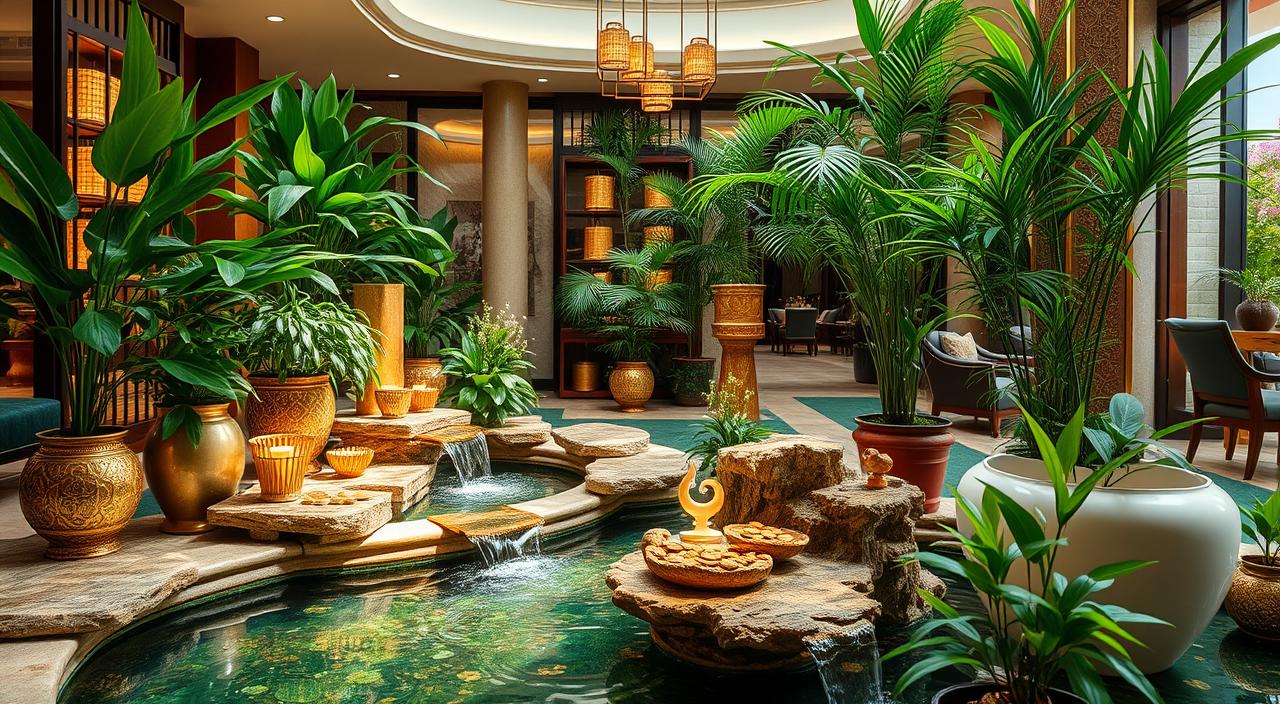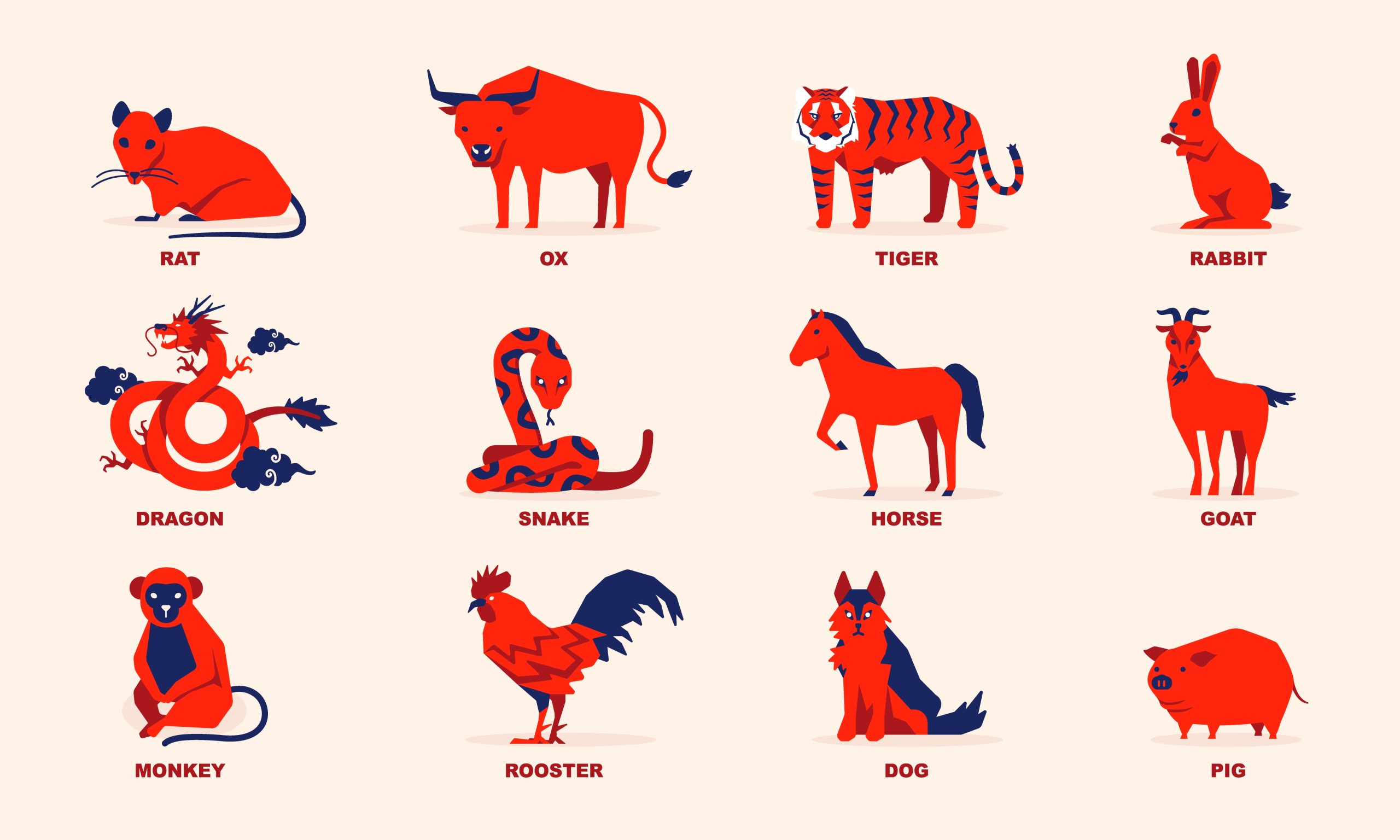Few practices have captured the public’s imagination like feng shui. This ancient art aims to harmonize our environment for balance and well-being. But, with growing interest, myths and misconceptions have also risen. We will explore the truth behind these myths, aiming to clear up the confusion.

Key Takeaways
- Feng shui is not just about decorative elements, but a system to optimize energy flow in a space.
- Effective feng shui adjustments don’t need to be expensive. Simple, practical changes can make a big difference.
- Feng shui is a universal practice, not tied to any culture or ethnicity.
- Feng shui is based on centuries of observation and practice, grounded in scientific principles.
- Feng shui should be seen as a long-term approach, not a quick solution to life’s problems.
Understanding Feng Shui: Separating Fact from Fiction
Feng shui is an ancient Chinese art that aims to harmonize individuals with their environment. It involves arranging and decorating spaces to promote better energy flow and balance. It’s not just about decorating; it’s about understanding the energies and intentions behind design.
What is Feng Shui and Its True Essence
Feng shui is not a superstition or ritual. It’s a system that blends environmental psychology, architectural principles, and urban planning. It doesn’t require big changes, like shifting doors or furniture, without major renovations.
Aligning with feng shui is like planting seeds in a garden. It fosters growth but needs time and patience. Feng shui can be tailored to fit individual needs, considering personal preferences and lifestyle. Getting advice from experts is key for personalized and effective recommendations.
“Feng shui is not just about decorating your space. It encompasses more profound aspects, such as understanding the underlying energies and intentions behind different elements of design.”
Dr. Stephen Skinner, who introduced real feng shui to the West in the 1970s, says it’s complex and nuanced. By separating fact from fiction, we can unlock its true essence and harness its transformative power.

Feng Shui Myths: Debunking Common Misconceptions
Feng shui has become more popular, but many myths surround it. Some think it’s just superstition with no science backing it. Others believe it’s a one-size-fits-all solution or that it needs expensive changes to work.
In truth, feng shui is much more than decoration or superstition. It’s a detailed system that aims to make environments harmonious. It focuses on energy flow and how people interact with their surroundings.
Many think objects in feng shui are just for looks and don’t matter. But, the way objects are placed can really change a space’s energy flow. Also, water in feng shui isn’t just for looks. It’s used to gather good energy and can be placed to improve certain areas.
Some believe numbers, like lucky or unlucky ones, greatly affect feng shui. But, numbers themselves don’t have any special feng shui powers. Their impact depends on what people believe and their culture.
- Feng shui is often linked to love or marriage. While it can open doors, it can’t control these life aspects directly.
- Many think mirrors can bring wealth or food. Mirrors in feng shui are for reflection, not magic to change your money or food situation.
- Some believe certain fish or colors can change feng shui for luck or wealth. Fish, no matter their type or color, don’t have any special feng shui effects.
Feng shui isn’t just about placing decorative items like mirrors. It’s a full system that looks at energy flow and balance. It considers furniture, lighting, and the five elements.
By clearing up these myths, we can see feng shui’s true value. It’s not just about quick fixes or decoration. It’s about creating a balanced space that supports our well-being and life experiences.

“Feng shui is not about superstition or quick fixes; it’s about creating a harmonious and balanced environment that supports your well-being and enhances your life experiences.”
Feng Shui is Only About Decor
Many people think feng shui is all about decorating. But it’s more than that. It’s an ancient Chinese art that looks at energy flow, furniture placement, and the five elements.
Feng shui is not just about moving furniture or adding decorations. It’s about understanding the deeper principles. It aims to balance the energy in your space to support your goals and well-being.
Feng Shui as a Holistic Approach
Feng shui looks at more than just your home. It considers the outside environment, climate, and geography. It also looks at your home’s orientation, door and window placement, and energy flow.
“Feng shui is not just about decorating your home; it’s a way of living in harmony with your surroundings. It’s a holistic approach to creating a balanced and supportive environment.”
Feng shui is not just about decor. It’s a powerful tool for positive change. It can improve your well-being, relationships, and even attract prosperity.

Feng shui is complex and goes beyond interior design. It’s a system that aims to create harmony and support for individuals and communities. By understanding feng shui, you can unlock its transformative power and enjoy its benefits.
Feng Shui Brings Instant Wealth and Success
Many people think feng shui can make money and success appear overnight. But, it’s not a magic wand for wealth and success. To really achieve your goals, you need to grow personally, learn, and work hard.
Feng shui can make your space feel better, boosting your creativity and energy. It works best when you take action too. But, don’t expect feng shui to do everything. Success needs a mix of effort and feng shui.
“Feng shui can enhance the energy flow in your space, but it cannot guarantee a sudden influx of money or career advancement. True success comes from a combination of personal growth and practical action.”
Some people say feng shui helped them earn more or get lucky with money. These stories are inspiring. But, they show that success comes from a mix of feng shui and hard work.
Knowing how feng shui really works can help you use it wisely. It’s not about getting rich quick. It’s about creating a good environment and working hard for your goals. So, feng shui wealth and feng shui success come from effort and a well-planned space.

Feng Shui Requires Expensive Changes
Many people think feng shui means spending a lot of money. They might imagine feng shui consultants asking for big changes. But, the truth is, you can make your space better with simple and cheap steps.
Practical and Affordable Feng Shui Adjustments
For example, you can move your furniture to improve energy flow. Adding plants can also boost positive vibes. And, getting rid of clutter can make a big difference without costing anything. A good feng shui consultant will help you find ways to improve your space without spending a lot.
- Rearrange furniture to enhance energy flow
- Add plants to increase positive energy
- Clear clutter for a significant impact
- Work with a feng shui consultant to find affordable solutions
It’s a common myth that feng shui means spending a lot. But, there are many easy and cheap ways to use these principles. By working with a pro and looking for affordable options, you can enjoy the benefits of feng shui without spending too much.

“Not all feng shui adjustments require financial investment, and a feng shui consultant should be able to work with your budget and suggest affordable changes.”
Only Chinese People Can Practice Feng Shui
Many think feng shui is only for Chinese people. But, this is not true. Feng shui started in Chinese culture, but it’s for everyone. It’s a universal practice that can help anyone.
Feng shui is not a religion or a cultural thing. It’s an ancient art and science. It helps us find balance and harmony in our spaces. Anyone can use feng shui to make their living or work space better.
But, it’s key to respect feng shui’s roots. Working with a feng shui expert is a good idea. They know how to use feng shui in a way that’s respectful and fitting.
Diverse Practitioners of Feng Shui
People from all over think feng shui is just for Chinese. But, a trip to China showed a different story. There were:
- Business people
- A Traditional Chinese Medicine doctor
- A dentist
- An anesthesiologist
- Architects
- Psychologists
- Restaurant owners
- Housewives
These people came from places like Malaysia, Singapore, Russia, India, Mexico, France, Germany, the United States, and Canada. This shows feng shui is for everyone, not just Chinese.
“Feng shui is a holistic approach to creating a harmonious living or working environment, and anyone can benefit from its principles, regardless of their cultural background.”

Feng shui may have started in China, but it’s for everyone. It can be used anywhere. By being open and willing to learn, people from all backgrounds can use feng shui to improve their lives.
Feng Shui is Superstitious and Unscientific
Many people think feng shui is just superstition, with no science backing it. But this is not true. The principles of feng shui are based on years of observing how energy moves in our world.
Feng shui also matches up well with modern science. It talks about using natural light and fresh air. These things are known to make us feel better and healthier.
The Science Behind Feng Shui Principles
Feng shui also teaches us to keep our spaces tidy. Studies have shown that this can lower stress and make us more productive. So, feng shui is not just old myths. It has a deep history and a solid scientific base.
“Feng shui is not about superstition, but a way to live in harmony with our environment. Its principles are based on science, showing how our surroundings affect our health and well-being.”
Research from places like Western Kentucky University and the Federal University of Bahia in Brazil supports feng shui. They show that feng shui is more than just old tales. It’s a powerful tool that can greatly improve our lives.

Feng Shui myths, misconceptions about Feng Shui
Feng shui, an ancient Chinese art, aims to harmonize surroundings with natural energy. This article has debunked many myths about it. We want to give readers a clear view of this powerful practice.
Many think feng shui is just about decorating. But it’s much more. It considers the energy of a space, object placement, and balance. Feng shui is about creating a supportive environment, not just looking good.
Some believe feng shui guarantees wealth and success. But it’s not a quick fix. Real change comes from personal growth, planning, and effort.
Feng shui doesn’t need big changes or expensive fixes. Small tweaks can greatly improve a space’s energy. By understanding feng shui, you can make simple changes to enhance your environment.
“Feng shui is not a set of rigid rules, but a dynamic system that adapts to the unique needs and circumstances of each individual.”
Feng shui is not just for Chinese people. It’s a universal practice for anyone. It’s based on natural rhythms and the connection of all things, helping people everywhere.
Some think feng shui is superstitious and not scientific. But research shows it’s based on real principles. It connects to fields like environmental psychology and architecture.
We’ve tackled common feng shui myths to help readers understand it better. We hope this opens their minds to its power and helps them use it in their lives.
Feng Shui Can Solve All Your Problems
Many people think feng shui can fix all their problems. But, it’s not a magic wand for every issue. It’s key to know what feng shui can and can’t do.
Feng shui can’t take the place of doctors or financial advisors. It’s not a fix for all health or money troubles. Yet, it can make our lives better by improving our well-being and creating calm spaces. It can also help with relationships, sleep, and work.
Realistic Expectations and Limitations
Knowing the truth about feng shui helps us use it wisely. It’s not a one-size-fits-all fix. Each person needs to tailor feng shui to their unique situation.
“Feng Shui is not a magical solution, but it can be a powerful tool to enhance our well-being and create a more harmonious living environment.”
Don’t expect feng shui to solve everything. Set realistic goals and focus on where it can really help. By blending feng shui with other good practices, you can live a more balanced and happy life.
Misconceptions About Feng Shui Practices
Feng shui, an ancient Chinese practice, has many misconceptions. Despite its growing popularity, myths and misunderstandings persist. Let’s explore some common feng shui misconceptions.
One myth is that feng shui consultants demand a complete home makeover. But, experienced practitioners work within a client’s budget and preferences. They make small, affordable changes to improve a space’s energy flow, or qi.
Another myth is that feng shui is tied to Eastern philosophies, like Daoism. But, feng shui is universal and can be practiced by anyone. It’s not limited to specific cultures or religions.
- Myth: Feng shui design is outdated. This is false, as feng shui evolves to meet modern needs.
- Myth: A feng shui consultant’s work is done after one visit. In fact, regular updates are needed to keep energy flowing well.
- Myth: Clients shouldn’t be present during feng shui consultations. Actually, their input is often encouraged to ensure the advice fits their needs.
The idea that making a living as a feng shui consultant is impossible is also a myth. As feng shui grows in popularity, so does the need for skilled practitioners. They offer valuable insights to individuals and businesses.
We aim to clear up these misconceptions about feng shui. Understanding its true nature and benefits requires an open and informed approach. This way, we can unlock feng shui’s full power.
Conclusion
Feng shui is often misunderstood, filled with misconceptions. By exploring its facts, we get a clearer view of this ancient tradition. It’s not just about decorations; it’s a way to make our spaces better for our well-being and success.
We’ve debunked myths like feng shui being only about decorations or bringing wealth quickly. It’s actually about improving the flow of energy and aligning our spaces with nature. This approach helps us live in harmony.
It’s important to keep challenging our beliefs and truly understand feng shui. Whether you’re new or experienced, staying open-minded is key. This way, you can make spaces that support your health, goals, and happiness.
FAQ
What is Feng Shui and its true essence?
Feng shui is an ancient Chinese art that aims to harmonize individuals with their environment. It involves arranging and decorating spaces to promote better energy flow and balance. It’s not just about decorating; it’s about understanding the energies and intentions behind design elements.
Does Feng Shui only concern interior design and decorating?
No, Feng Shui is more than just interior design. It considers the flow of energy, furniture placement, and element balance. It also looks at external factors like the environment, climate, and geography.
Can Feng Shui bring instant wealth and success?
No, this is a common misconception. Feng Shui can improve energy flow, but it can’t guarantee sudden wealth or success. Focus on personal growth, education, and hard work to achieve your goals.
Does Feng Shui require expensive renovations and changes?
No, you don’t need to spend a lot to apply Feng Shui. Simple changes like rearranging furniture or adding plants can make a big difference. Clearing clutter is also effective without spending money.
Is Feng Shui only for Chinese people?
No, this is a misconception. Feng Shui is for everyone, not just Chinese people. It’s an ancient art and science focused on achieving balance and harmony in our surroundings.
Is Feng Shui a superstitious and unscientific practice?
No, this is a common misconception. Feng Shui is based on years of study and observation of energy flow. Many of its practices align with modern science’s understanding of our environment’s impact on well-being.
Can Feng Shui solve all of a person’s problems?
No, this is a misconception. Feng Shui can enhance certain aspects of our lives, but it’s not a magical solution. It’s important to have realistic expectations and understand its limitations. Feng Shui can’t replace medical care or financial planning.














